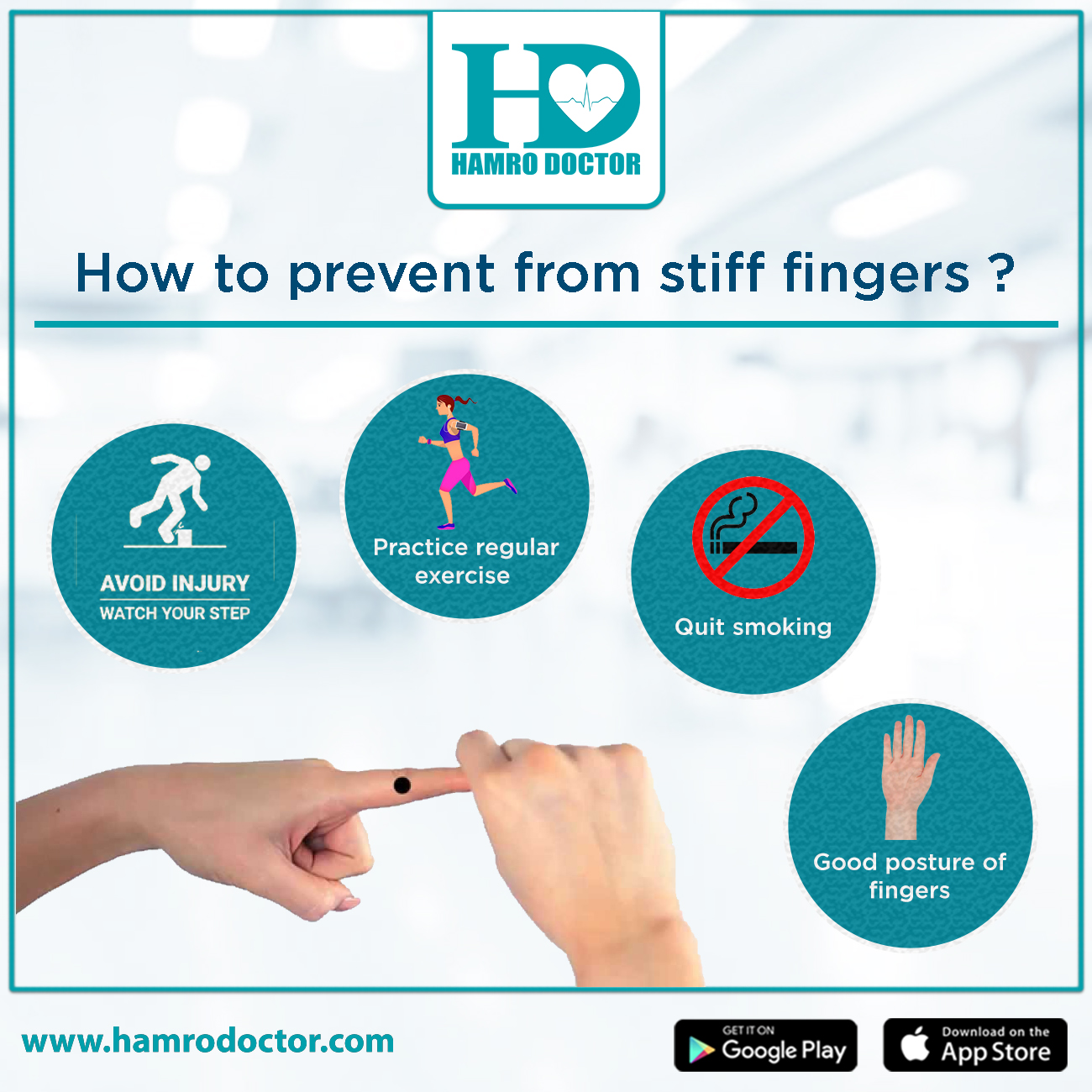CT- scan and MRI centers in Kathmandu
6 November, 2020CT- scan and MRI centers in Kathmandu...
Read More
There are multiple functions of fingers and are extremely important for daily life. Any deviation from a normal function can lead to disability. Stiffness of fingers is one such problem that may lead to such disability. Without normal use of fingers, all activities, including household tasks, work, hobbies, and sports, can become more difficult. Therefore, the clinician needs to recognize the various traumatic and nontraumatic disorders that can lead to fingers' stiffness.
We have discussed many causes of stiff fingers below:
Osteoarthritis:
Osteoarthritis is caused by degenerative changes, wear and tear of the joint, and it's space. It commonly affects the joints in hand and fingers and most often in patients over 40 years of age. The most common symptom associated with finger osteoarthritis is joint pain and stiffness, which is typically exacerbated by activity and relieved by rest. Besides, long-term osteoarthritis in fingers may lead to the finger joint's enlargement, commonly called Heberden's and Bouchard's nodes. These commonly leads to stiffness and immobility of the fingers and joints.
Inflammatory arthritis:
Rheumatoid arthritis is the most common form of inflammatory arthritis affecting the hands and fingers. The onset of inflammatory changes is usually gradual, with the predominant symptoms being pain, stiffness, and swelling of many joints. The subsequent stiffness is caused by damage to the cartilage of the finger joints. Loss of the normal smooth gliding of a joint often results in limited motion of the joint. The fingers and hands are a common site of early involvement—people with rheumatoid arthritis experience early morning stiffness. Also, bilateral symmetric involvement is a characteristic feature of it, although this may be less apparent early in the disease.
Trauma:
The fingers are susceptible to several traumatic injuries. Finger joint dislocations and "jammed fingers" following trauma causes swelling, wear, and tear of ligaments. These injuries may lead to changes in the normal flexibility of supportive structures. Thus, it may limit the mobility of fingers and stiffness.
Scars:
Scars are formed for any injuries, surgeries, and burn. When there is scarring of the skin and deeper tissues, the fingers' mobility is limited, causing stiffness eventually.
Trigger finger (stenosing flexor tenosynovitis):
Trigger finger is one of the most common causes of finger pain in adults. Patients with trigger fingers initially describe snapping, catching, stiffness, or locking of one or more fingers during the affected digit's flexion. These symptoms often become progressively severe and painful. The tendons that bend the fingers normally slide freely through the tunnels. When lump forms in those tendons, they cannot slide normally. Thus, mobility of the fingers is limited. The patient will identify the pain in the palm or rub over the tendon in the palm. Frequently a patient will demonstrate the locking and stiff phenomenon when describing the condition.

Dupuytren'scontracture:
Dupuytren's contracture is characterized by progressive fibrosis of the tissues of the palm. This leads to contractures that draw one or more fingers into a bending position and causing stiffness and immobility. This occurs primarily in males over the age of 50 and appears to have a pronounced genetic predisposition. The incidence of Dupuytren's contracture is two to five times higher among workers exposed to repetitive handling tasks or vibration compared with those not exposed to such trauma. It also occurs more frequently in patients with diabetes mellitus and may be associated with cigarette smoking and alcohol abuse.
Tumors:
Non-cancerous bone tumors such as simple bone cysts and enchondromas are relatively common in the fingers. These are typically asymptomatic but sometimes may restrict the movement of fingers. These are often diagnosed as an incidental finding on routine hand x-rays and radiographs. Other soft-tissue tumors can also occur in hand and fingers, such as tenosynovial giant cell tumors, lipomas, and glomus tumors can also occur.
Immobilization:
After injury or surgery of fingers, they are usually immobilized by splinting or casting. Long-term immobilization of a finger's parts can lead to loss of flexibility of finger joint and may result in tissue shortening. When usual fingers are included in the same treatment management, similar changes may occur in those fingers as well. In such cases, stiffness of the finger occurs even without injury.
The best treatment for stiff fingers is to identify the underlying problem, and thus, we recommend consulting an orthopedic surgeon or rheumatologist to find out the cause. The treatments may include medications, splinting, casting, bracing, surgery, and hand therapy.
However, there are few general preventive measures one can take in order to prevent the stiff fingers. These are:
Leave a comment